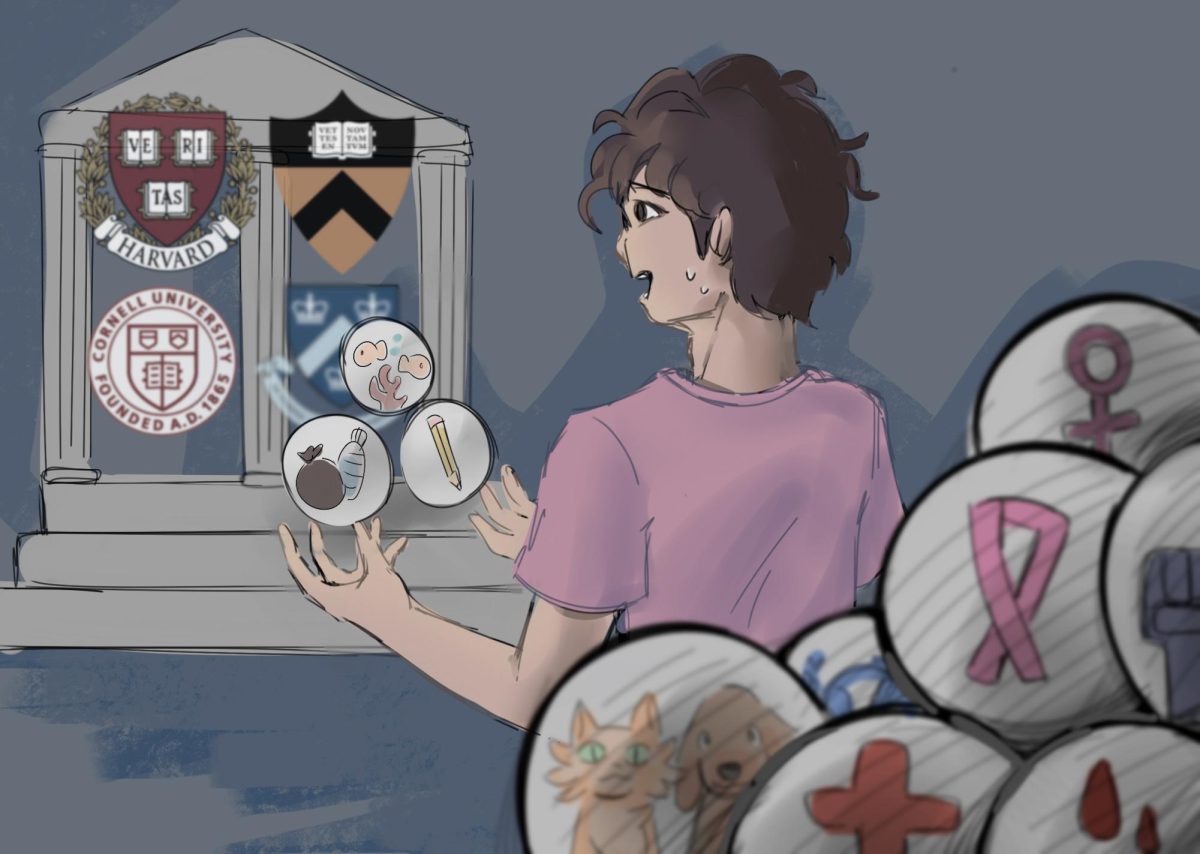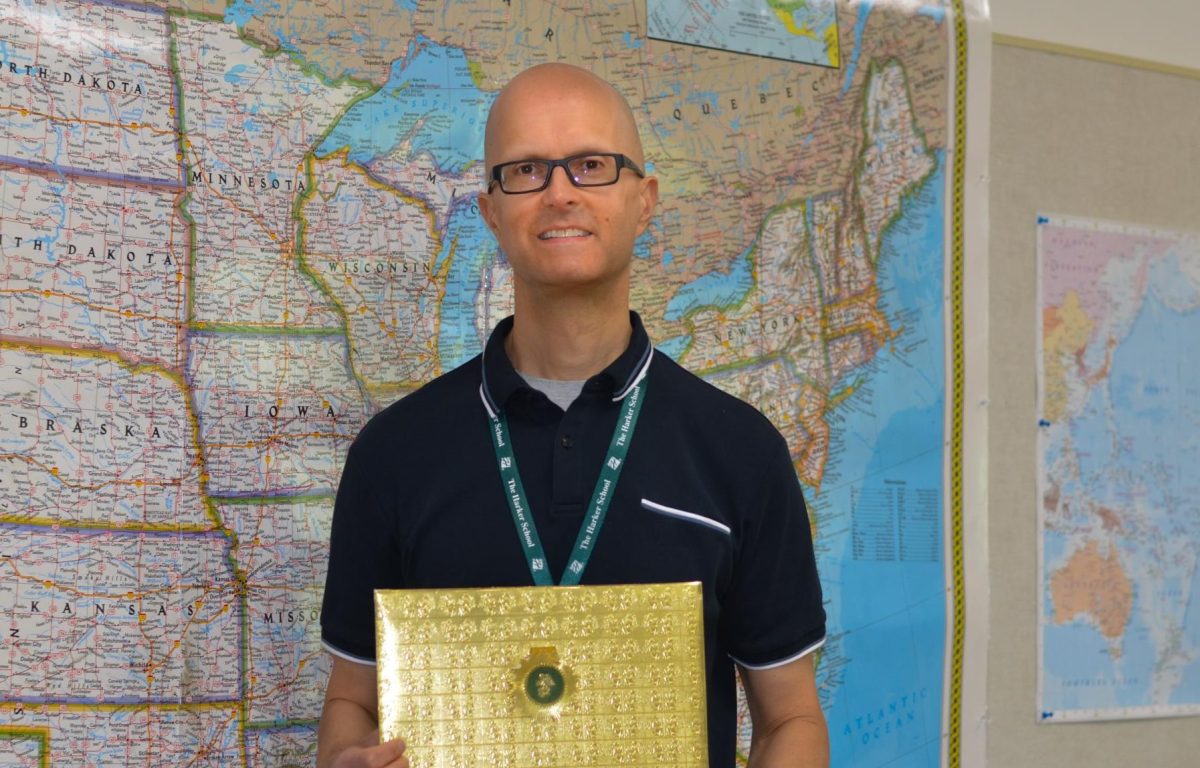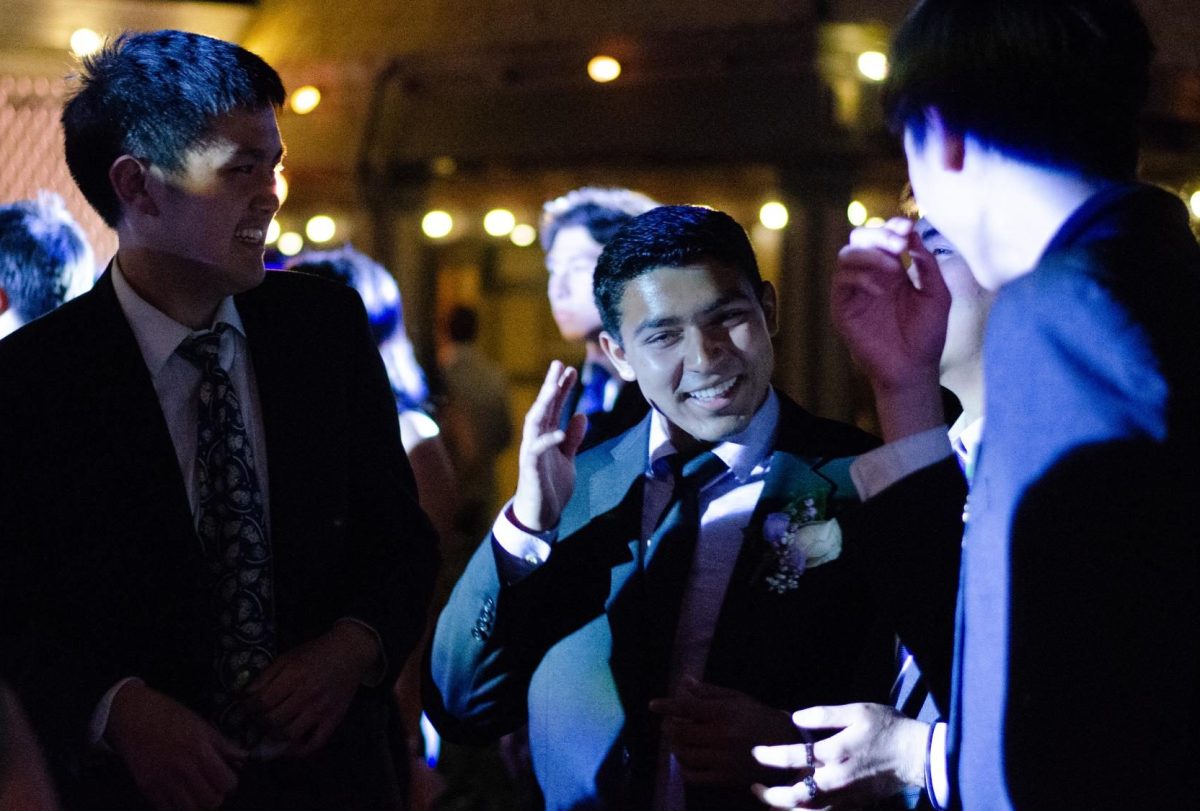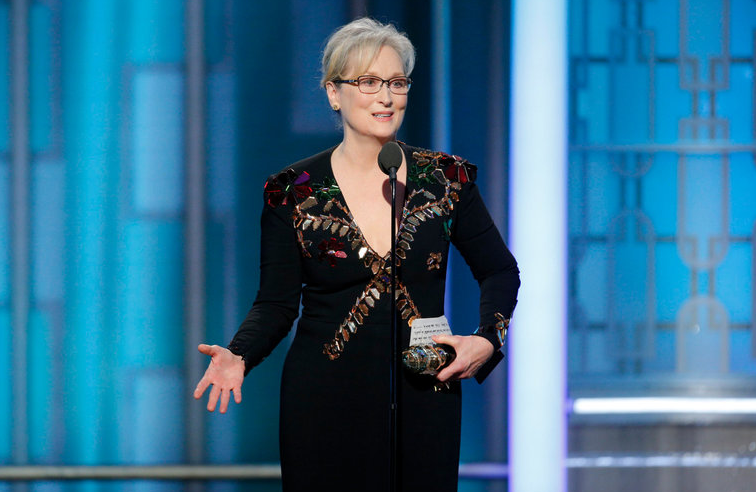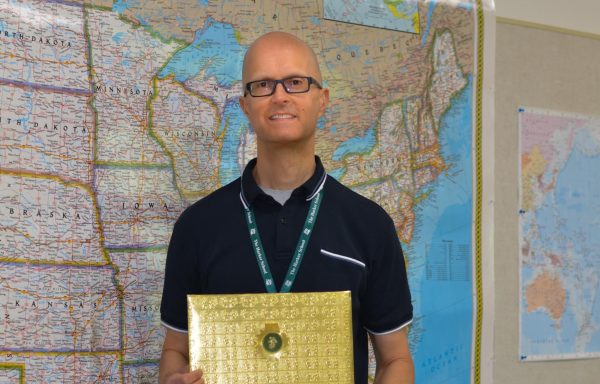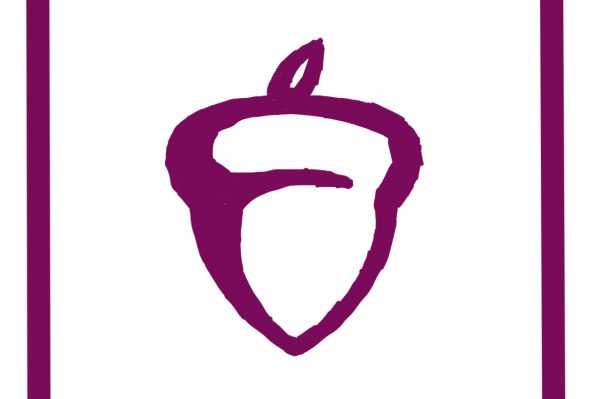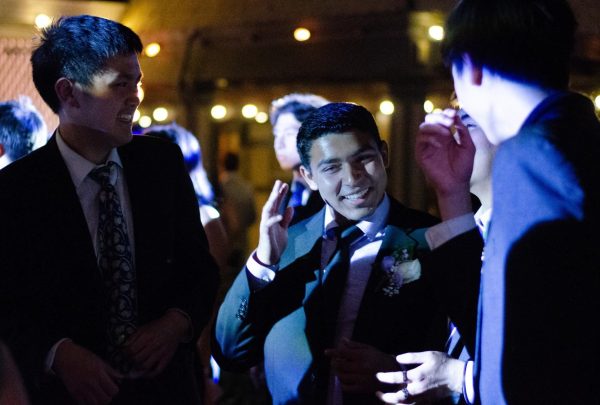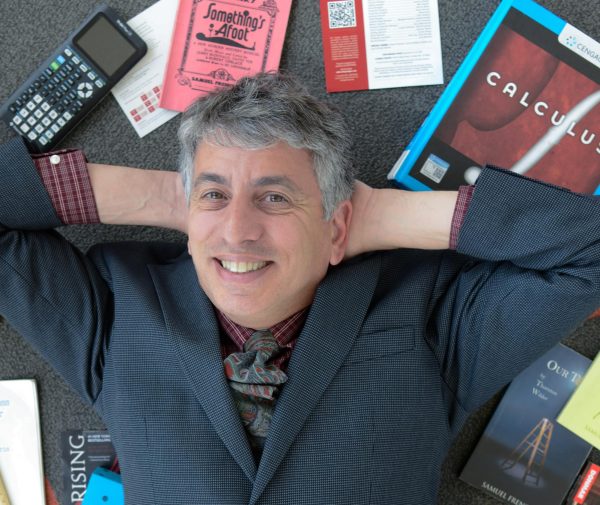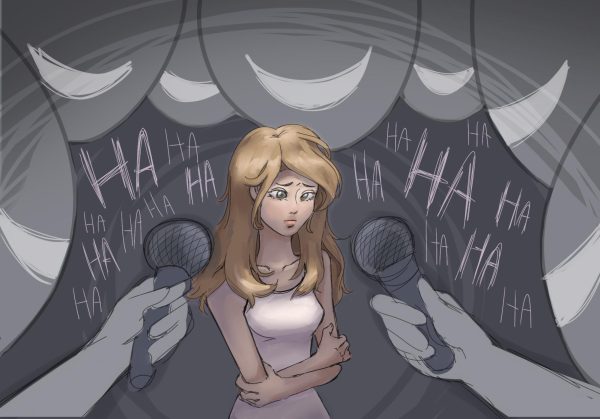First Amendment Friday: The future of the press during Trump’s presidency
First Amendment Friday is a repeater that discusses the rights pertaining to the First Amendment, including freedom of speech, of religion, of the press, of the right to assemble and to petition the government.
Courtesy of New York Times
Actress Meryl Streep makes a speech at the 2017 Golden Globes awards. Streep’s speech revolved around the importance of the press.
January 27, 2017
As President Donald J. Trump steps into office, the role of the press in the presidency shifts as uncertainty spreads around which rights that the First Amendment protects.
The First Amendment states that “Congress shall make no law respecting an establishment of religion, or prohibiting the free exercise thereof; or abridging the freedom of speech, or of the press; or the right of the people peaceably to assemble, and to petition the Government for a redress of grievances.”
President Trump is known for antagonizing the press even though they play a crucial role in his campaign and in his presidency. He has repeatedly lashed out at television networks such as NBC and newspapers such as the New York Times for spreading false news.
“I would say that the press’s job is to monitor centers of power, and the presidency is one of the biggest centers of power in the world,” managing editor of Poynter Institute Benjamin Mullin said. “The press’s job, I would say, is to provide a check on the authority of the presidency, to make sure that the president is honest about what’s happening with the government and hopefully to promote transparency throughout all levels of the general government.”
Trump often accuses professional journalists of false news, which leads him to avoid press conferences. During his campaign, he held his first press conference in July, and he recently held his second on January 11. However, the sparsity of press conferences leads to a number of unanswered questions about the president’s policies.
“On the one hand, I really appreciate the sensitive and caring nature of the students who are in journalism classes. On the other hand, it’s also important how to ask difficult questions in a civil voice, with a calm demeanor, but with courage and with the idea you’re going to get the answer to it,” Director of Journalism Ellen Austin said. “I think now more than ever we need strong journalists, and that’s at every level, whether it’s covering the White House or covering a high school campus.
Because of their aversion to these sensitive questions, Trump’s administration may bring threats against the liberty of the press. In February, during a rally in Fort Worth, he spoke about libel laws, although he has not touched upon the subject since he was inaugurated.
“I’m going to open up our libel laws, so when they write purposively negative and horrible and false articles, we can sue them and win lots of money,” he said.
Recently, Meryl Streep spoke about the importance of the press, subtly pointing at the discord between the Trump and the press.
“We need the principled press to hold power to account, to call him on the carpet for every outrage,” she said in her speech at the Golden Globes awards. “That’s why our founders enshrined the press and its freedoms in the Constitution.”
On the day after the inauguration, Trump’s press secretary, Sean Spicer, explained that there seemed to be less people at the inaugurations due to the framing of the photographs and the grass covering, which “had the effect of highlighting any of the areas where people were not standing.”
“This was the largest audience to ever witness an inauguration, period, both in person and around the globe,” he said. “These attempts to lessen the enthusiasm of the inauguration are shameful and wrong.”
On Wednesday, Stephen Bannon, the Counselor to the President, called the media “the opposition party.”
“The media should be embarrassed and humiliated and keep its mouth shut and just listen for a while,” he said in an interview with New York Times.
However, ever since Trump was sworn in as president, he himself has not said anything against the First Amendment.
“Peaceful protests are a hallmark of our democracy. Even if I don’t always agree, I recognize the rights of people to express their views,” he tweeted on Sunday.
Despite his tweet, many are worried about the future of the press and, more specifically, whether the president with acknowledge the importance of the press.
“[The first amendment] is endangered in the sense that the official policy of the president’s administration is based on packaging messages and promoting its outlook regardless of the efficacy of that outlook,” history and social science teacher Damon Halback said. “Presidents always package their messages, but this administration uniquely has shown an desire to place their outcomes over fact-based outcomes in a way that’s unprecedented.”
































![Setter Emma Lee (9) sets the ball to the middle during the match against Pinewood on Sept. 12. “[I’m looking forward to] getting more skilled, learning more about my position and also becoming better friends with all of my teammates, Emma said.](https://harkeraquila.com/wp-content/uploads/2023/09/DSC_4917-2-1200x795.jpg)
































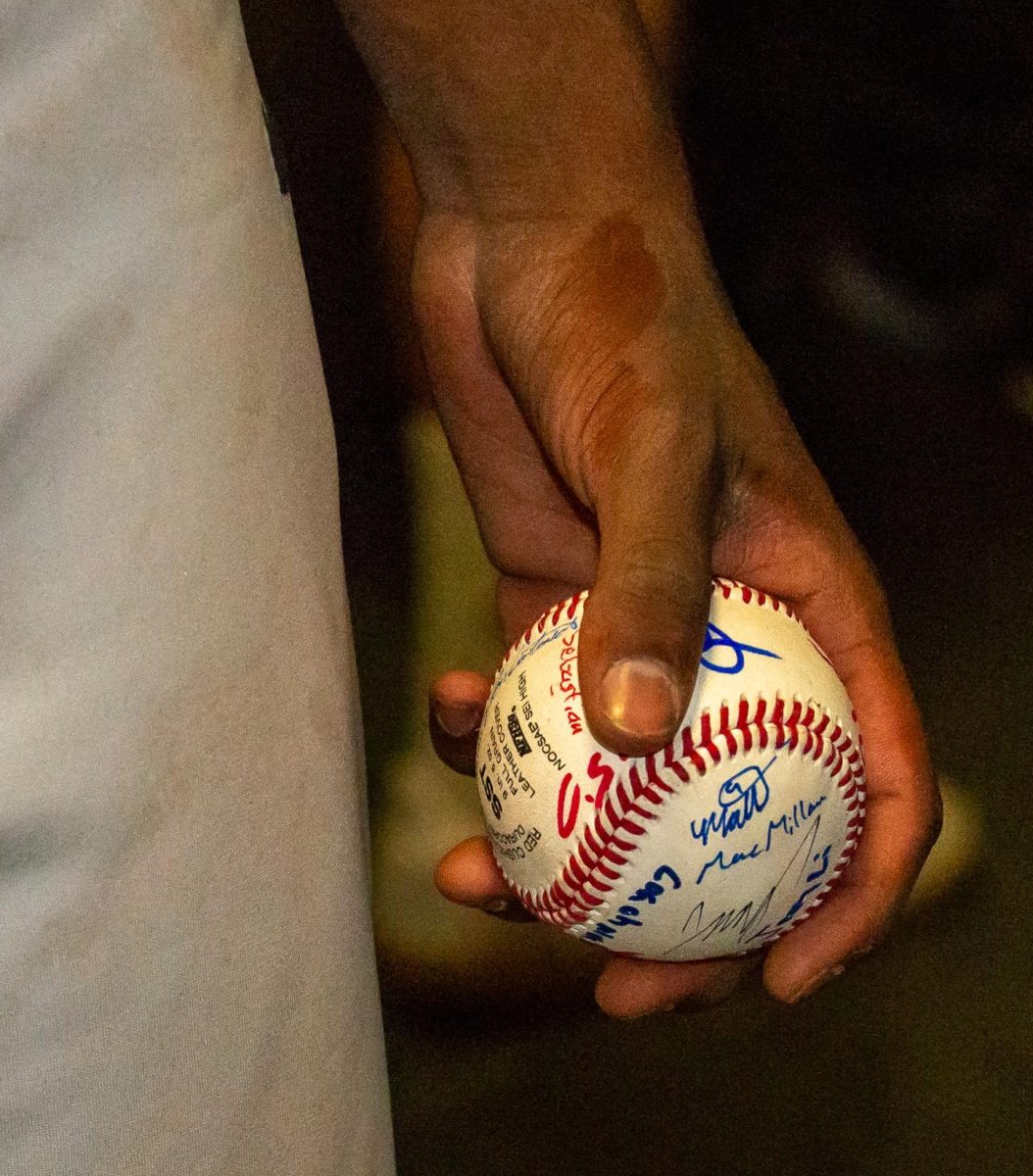
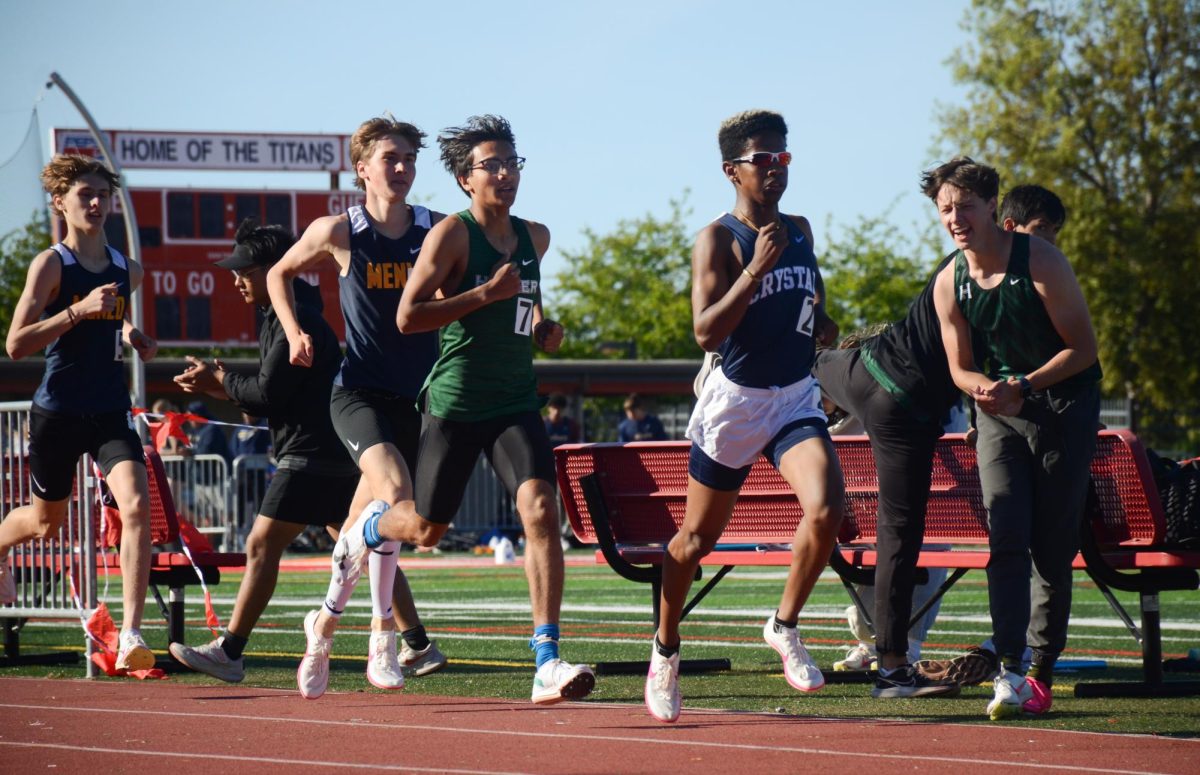































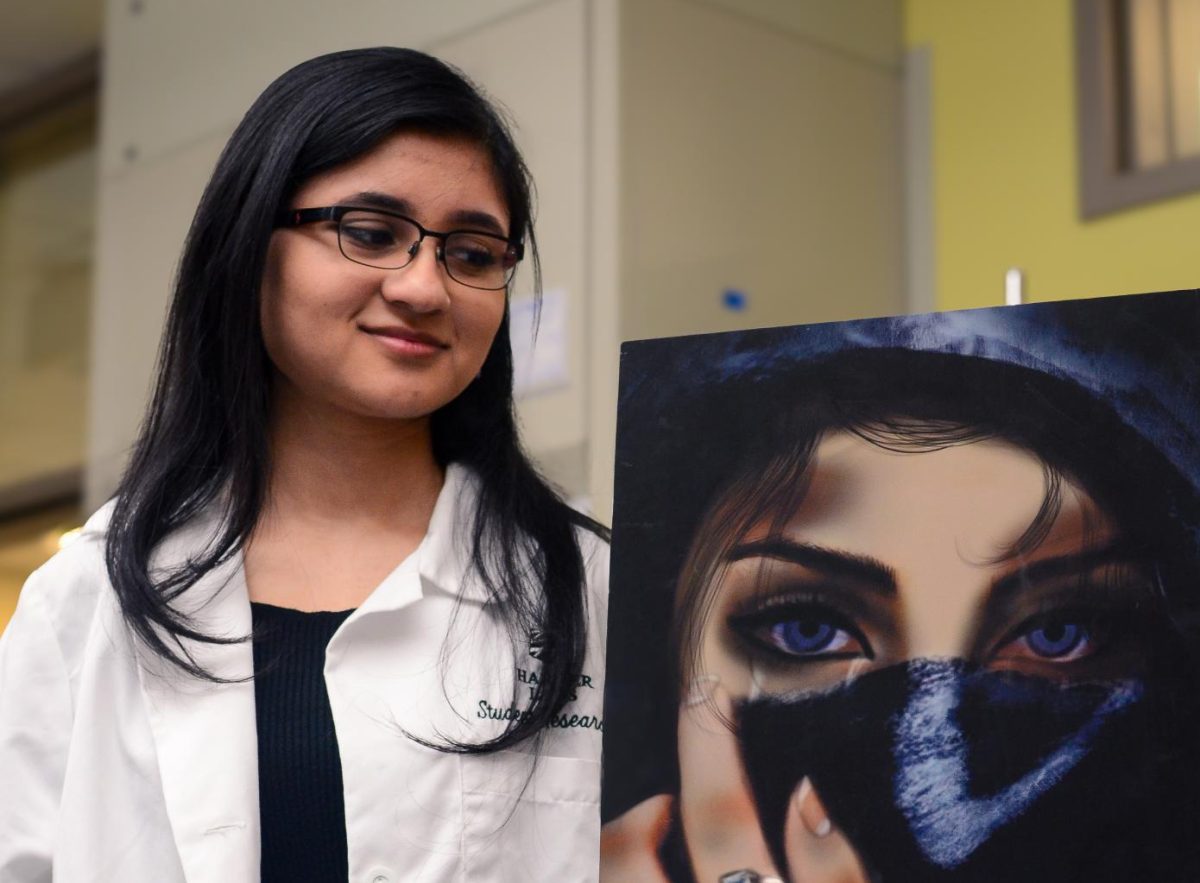



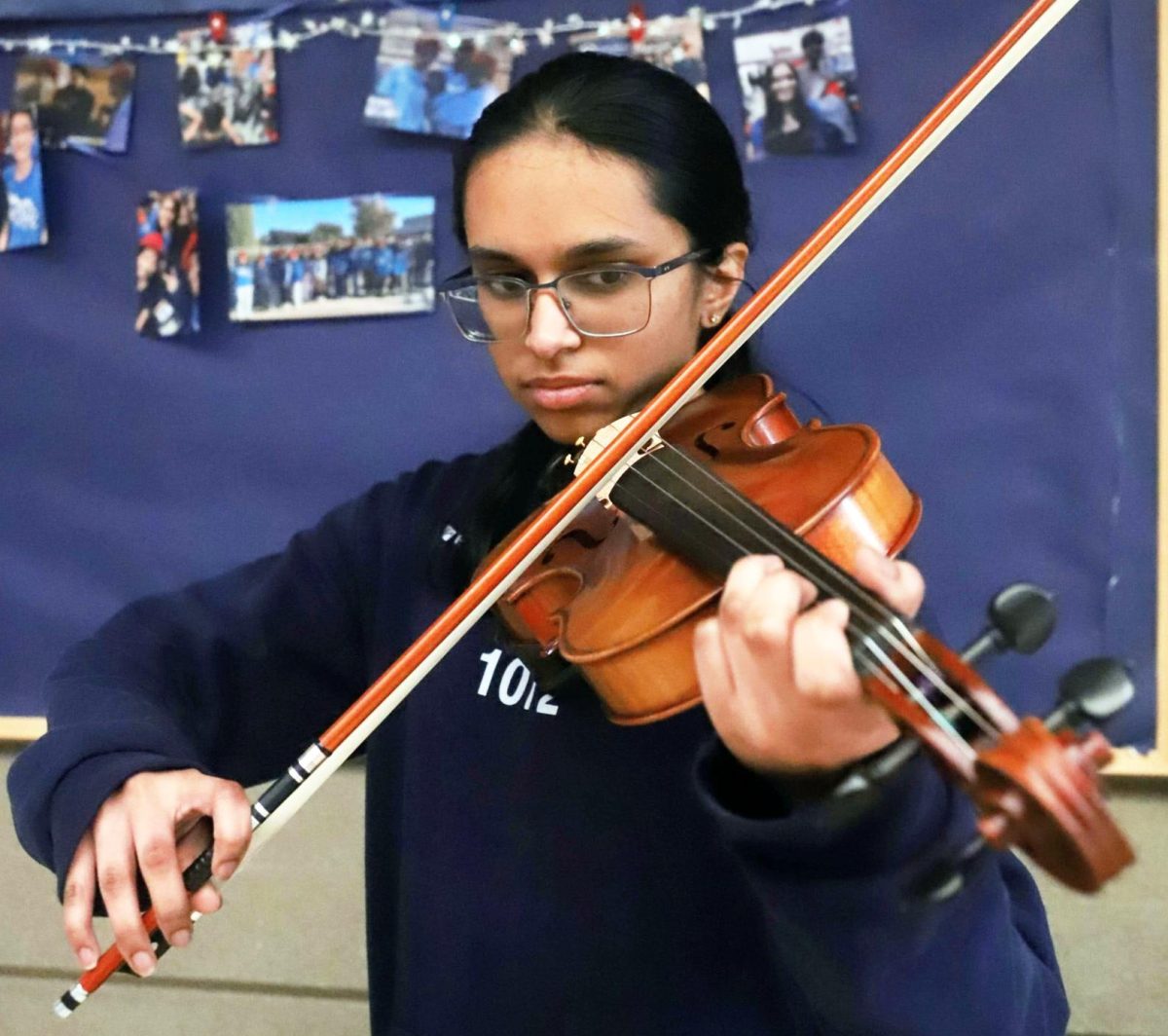









![“[Building nerf blasters] became this outlet of creativity for me that hasnt been matched by anything else. The process [of] making a build complete to your desire is such a painstakingly difficult process, but Ive had to learn from [the skills needed from] soldering to proper painting. Theres so many different options for everything, if you think about it, it exists. The best part is [that] if it doesnt exist, you can build it yourself, Ishaan Parate said.](https://harkeraquila.com/wp-content/uploads/2022/08/DSC_8149-900x604.jpg)


![“Animation just clicked in a way. I had been interested in art, but that felt different. [Animation] felt like it had something behind it, whereas previous things felt surface level. I wasnt making that crazy of things, but just the process of doing it was much more enjoyable, Carter Chadwick (22) said.](https://harkeraquila.com/wp-content/uploads/2022/08/Screen-Shot-2022-08-16-at-9.44.08-AM-900x598.png)


![“When I came into high school, I was ready to be a follower. But DECA was a game changer for me. It helped me overcome my fear of public speaking, and its played such a major role in who Ive become today. To be able to successfully lead a chapter of 150 students, an officer team and be one of the upperclassmen I once really admired is something Im [really] proud of,” Anvitha Tummala (21) said.](https://harkeraquila.com/wp-content/uploads/2021/07/Screen-Shot-2021-07-25-at-9.50.05-AM-900x594.png)



![“[Volleyball has] taught me how to fall correctly, and another thing it taught is that you don’t have to be the best at something to be good at it. If you just hit the ball in a smart way, then it still scores points and you’re good at it. You could be a background player and still make a much bigger impact on the team than you would think,” Anya Gert (’20) said.](https://harkeraquila.com/wp-content/uploads/2020/06/AnnaGert_JinTuan_HoHPhotoEdited-600x900.jpeg)

![“Im not nearly there yet, but [my confidence has] definitely been getting better since I was pretty shy and timid coming into Harker my freshman year. I know that theres a lot of people that are really confident in what they do, and I really admire them. Everyones so driven and that has really pushed me to kind of try to find my own place in high school and be more confident,” Alyssa Huang (’20) said.](https://harkeraquila.com/wp-content/uploads/2020/06/AlyssaHuang_EmilyChen_HoHPhoto-900x749.jpeg)













![“My slogan is ‘slow feet, don’t eat, and I’m hungry.’ You need to run fast to get where you are–you arent going to get those championships if you arent fast,” Angel Cervantes (12) said. “I want to do well in school on my tests and in track and win championships for my team. I live by that, [and] I can do that anywhere: in the classroom or on the field.”](https://harkeraquila.com/wp-content/uploads/2018/06/DSC5146-900x601.jpg)

![“I think getting up in the morning and having a sense of purpose [is exciting]. I think without a certain amount of drive, life is kind of obsolete and mundane, and I think having that every single day is what makes each day unique and kind of makes life exciting,” Neymika Jain (12) said.](https://harkeraquila.com/wp-content/uploads/2017/06/Screen-Shot-2017-06-03-at-4.54.16-PM.png)





